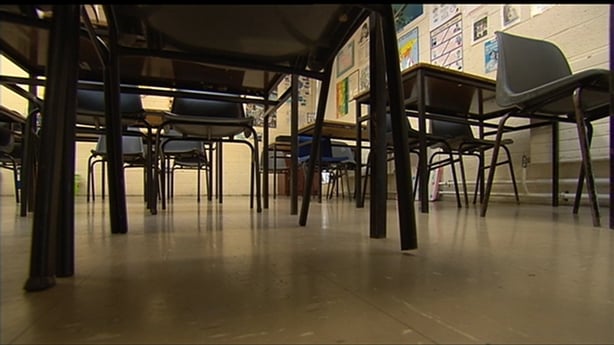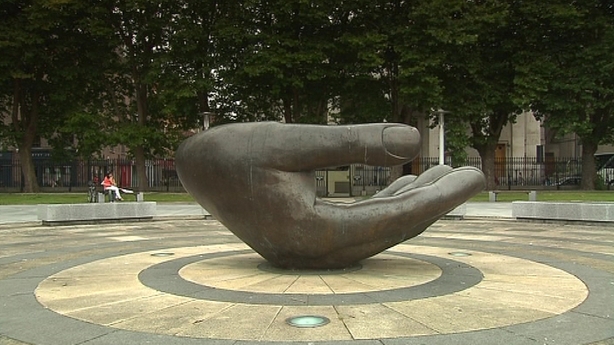Last night, the Irish National Teachers' Organisation rejected government proposals aimed at restoring partial pay equality for public servants recruited since 2011 on lower pay rates than incumbent government employees.
The rejection came as a shock in many quarters - particularly as INTO General Secretary Sheila Nunan was one of the key negotiators of the proposals.
The union is now expected to sanction a ballot for industrial action, but there are many steps to go over at least two months before there would be a realistic prospect of strike action in schools.
2011 was the year that pay scales for new recruits were cut by 10% - meaning that staff recruited since then have been earning 10% less than their pre-2011 colleagues for doing the same work.
The most recent research estimated that 60,500 of the State's 300,000 workforce from across the public service are affected by lower pay - though that figure has almost certainly risen since then as the government lifted its moratorium on recruitment.
Teachers were hit particularly hard.
On top of reduced pay scales, certain allowances for things like qualifications were also slashed for new entrants.
In addition, many teachers do not start their careers with full-time posts, but rather with hours here and there, making it even harder to make a living.
Seven years on, and pay inequality has remained a festering sore among public service unions across all grades.
Some have calculated that over a 40-year career, losses for some new entrants could run to hundreds of thousands of euro.
In last year's Public Service Stability Agreement (PSSA) - a pay deal which runs to the end of 2020 - the Government committed to a review of the new entrants' plight.
Once the review was completed, unions and the Government side were to meet to decide how to address the issue "... in a manner that does not give rise to implications for the fiscal envelope of this agreement and has regard for the medium term fiscal framework".
In other words, the Government was not writing a blank cheque for full restoration of pay equality - which was estimated to cost €200m.

Following negotiations, the Government put forward proposals providing for new entrants across the public service to skip certain incremental points on their pay scale so that they would ultimately catch up with their colleagues.
However, the lower starting rates remained and allowances for teachers were not reinstated. Back money categorically ruled out.
This left the three teacher unions - the Teachers' Union of Ireland, the Irish National Teachers' Organisation and the Association of Secondary Teachers in Ireland - with a dilemma when balloting their members on the deal.
Should they recommend to members that they accept the proposals, bank whatever gains were secured, and continue their campaign to achieve full restoration of equality in due course?
Or should they recommend rejection because what was on the table did not meet the threshold of reinstating full parity?
In the end, the three unions decided to put the proposals out to ballot without a recommendation either way.
First to return a result was the TUI, which represents around 17,000 teachers in second and third level schools and institutes of technology.
They voted to accept the proposals by 53-47% but pledged to continue their campaign for full equality.
Then, last night, the INTO voted to reject - by a margin of 53% to 47% the other way.
The INTO said the vote highlighted the strength of feeling among its 40,000 members - around 8,000 of whom are new entrants.
The INTO Central Executive Committee will meet on 7 November and is expected to sanction a ballot for industrial action.
But how likely is it that such a ballot will result in school closures?
First, the INTO rules dictate that a ballot for industrial action must pass by a 2/3 majority.
Some sources queried whether a 53/47 rejection would automatically translate into a 66% vote to take industrial action.
Second, there are serious consequences for a public service union that engages in industrial disruption as it would be viewed as a "repudiation" of the current PSSA.
Those consequences include delays in the payment of increments and pay restoration provided for under the deal. In addition, all 40,000 members would be hit, not just new entrants.
The question now is how will the ASTI vote?
Its ballot closes on 20 November, and there is speculation as to whether the outcome of the INTO vote will encourage a no vote in the ASTI.
So the timeframe for the next few weeks is as follows:
On 7 November, the INTO is expected to sanction a ballot for industrial action, but it's unclear how long that ballot will take.
Sometime after 20 November, the ASTI will announce the result of its ballot on the substantive new entrant proposals.
If members accept, the ASTI will probably join the TUI in campaigning to secure full equality, but members will bank the gains that are on the table.
However, if members reject, there's every possibility that the ASTI will also sanction a ballot for industrial action. The outcome of that might not be known until after Christmas.
Either way, the INTO vote is not the result the Government wanted, and Ministers Paschal Donohoe and Joe McHugh will be watching closely to see how the situation evolves, as will ministers in every other department with new entrants.

RTÉ News asked the Department of Public Expenditure and Reform the following questions:
1. What are the consequences for INTO members (especially new entrants) of yesterday's vote to reject the government's proposals for new entrants?
2. Will INTO new entrants still get the benefits of the proposals despite the union's rejection?
3. Does the rejection constitute repudiation of the PSSA?
4. If so what are the consequences for the INTO as a whole?
5. If it does not constitute repudiation, what does?
6. Given that the INTO Central Executive Committee is likely to sanction a ballot for industrial action, what would be the consequences of a decision to take industrial action?
7. Would actual industrial action have to happen before repudiation would be deemed to have occurred?
The department responded: "The general principle applying is that once a union is in compliance with the PSSA, that union receives the benefits of the agreement. This department cannot comment further on matters given their evolving nature."
Remember, there are also new entrants among doctors, nurses, and every other grade of the public service - all of whom remain aggrieved about pay.
Addressing the problems for teachers could open a Pandora's box of demands from other quarters - something the Government is determined to avoid.






